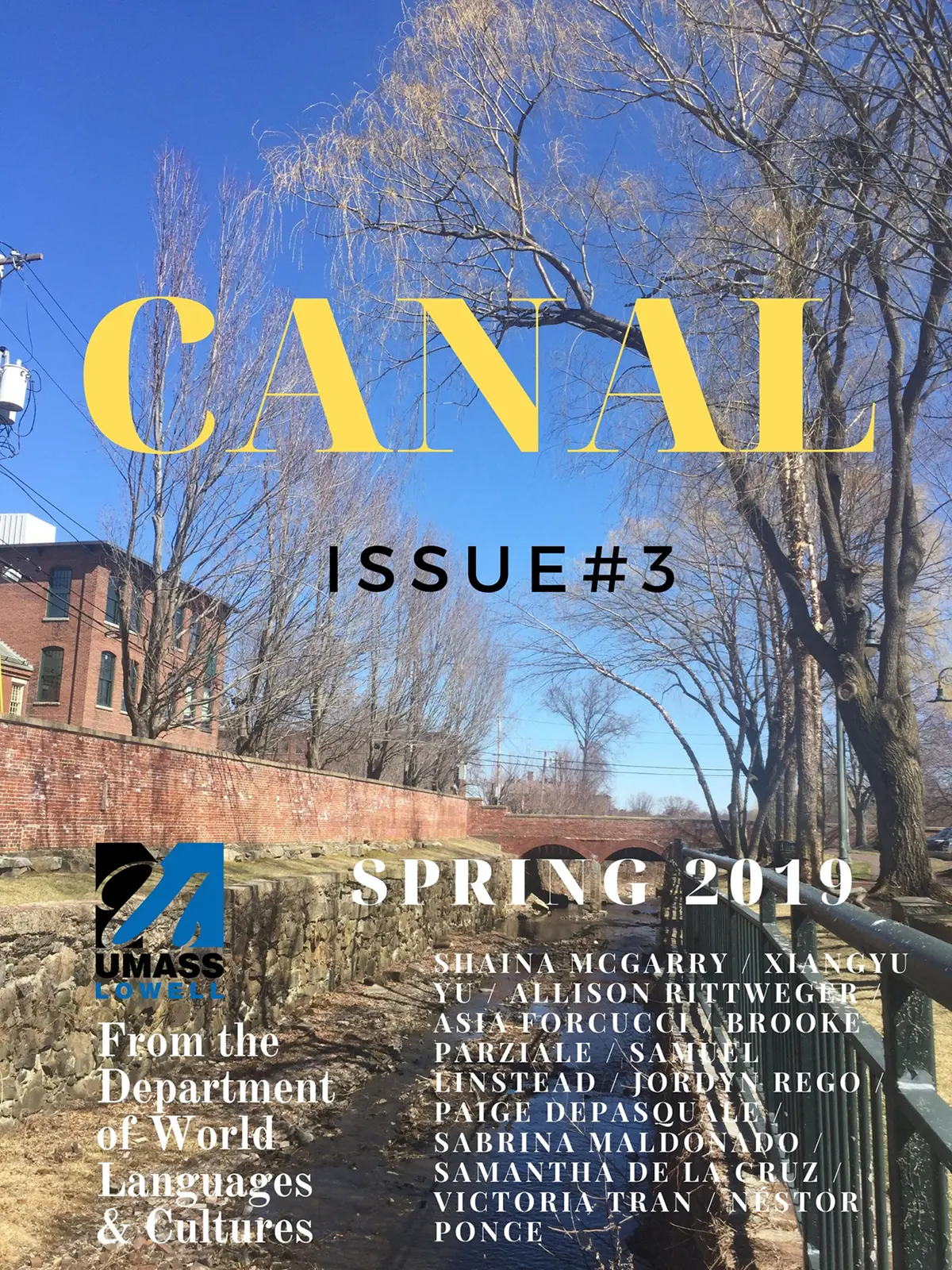Shaina McGarry, in her essay “El corazón y sus fronteras,” writes about the experience of contacting a woman named Daysi who, like her, has a husband who is serving in the US military. She learns that Daysi’s husband has been deployed to the southern border of the United States as part of the US President’s reaction to the caravan of immigrants seeking asylum. Shaina also learns that Daysi is the daughter of immigrants from Honduras and El Salvador and that, on both sides of her family, she has loved ones who have formed part of the caravan. Her interview and written text were both created as part of a cultural project within Ubelaker Andrade’s Spanish IV course. Ubelaker Andrade worked with Shaina to prepare the essay for publication.
Xiangyu Yu’s essay, “浅谈中国现今社会的亚文化之二次元文化,” is focused on China’s Nijigen Culture—a pop-cultural social world that draws heavily from the animation and video games of Japan and the West. The essay argues that its economic and cultural influences are also shaping identity in new, important ways. Xiangyu Yu conducted the research for this essay with the guidance of Yu Luo Rioux in a course titled Advanced Tutorial in Chinese Culture. Yu Luo Rioux also provided assistance in the preparation for this essay.
Allison Rittweger, in “L’impatto del cinema e della televisione italiana sulla realtà,” explores a number of ways that Italian film and television have shaped and influenced the everyday world. Both Fabiana Viglione and Giulia Po DeLisle worked with Allison in the preparation and editing of this essay.
Asia Forcucci wrote “Le traumatisme dans la littérature francophone” as part of her directed study course with Carole Salmon, who also worked closely with her in the editing process. The essay examines the history and violent legacy of French colonialism through the interpretation of three works; of literature that strategically use polyphonic voices, portray hybrid identities, and deconstruct linear time.
In “La modernisation de Paris à travers la littérature du 19ème siècle,” Brooke Parziale explores various representations of the 19th-century modernization of Paris in French literature by referencing the work of Balzac, Baudelaire and Zola. Her essay is a product of a directed study course conducted by Carole Salmon, who also assisted in the editorial preparation of the text.
Samuel Linstead, after taking Max Ubelaker Andrade’s Introduction to Literary Analysis course, decided to translate one of José Martí’s most famous poems. His “Two homelands” is a translation (and also, inevitably, an interpretation) of José Martí’’s “Dos patrias” that tries to communicate the complex, multifaceted nature of the original text.
Within Patrícia Martinho Ferreira’s Portuguese II course, four students composed original poetry with their newly acquired skills. We are happy to share Jordyn Rego’s “O Melhor de Mim,” Paige DePasquale’s “A Gentileza,” Sabrina Maldonado’s “Os Meus Caracóis,” and Samantha De La Cruz’s “O Meu Cabelo e Eu.”
Victoria Tran’s powerful essay “Building Understanding Through Language Learning” suggests that becoming proficient in different languages can allow us to connect with different cultural communities and, also, with different aspects of our own identities. It is the winner of the 2019 Canal Essay Contest.
Néstor Ponce’s written responses to the questions articulated by Candice Bishop, Amy Brennan, Nicole Rocci, and Connor Pennel are presented in “A Conversation with Néstor Ponce: Trauma, Poetry, Intimacy and Healing.” Together, they represent a unique opportunity to better understand the work and process of a poet who is reflecting on the connections and tensions between memory, imagination, language and justice.


